How To Plant Jackfruit Trees
You can easily start jackfruit trees from seed—you’ll just want to make sure you soak the seeds in water for one full day before planting. This will help them sprout much faster. Once they’ve been soaked, fill a small pot with some loose soil mixed with perlite to aid drainage. The pot should have drainage holes to ensure water doesn’t collect at the bottom. Even though jackfruit thrives in moist, humid environments, the germinating seeds don’t handle extra moisture that well.
Place three seeds in the pot, and press them in one inch deep. Give each one a few inches of space from the others, but don’t place them too close to the edge of the pot, or their roots will get all bunched up. Water them every day and keep them in a warm, sunny spot—preferably outdoors if the weather is nice. Once they start to sprout up, keep an eye on them to see which one is growing the best. Pluck out the two smaller ones, and then continue watering the one remaining seedling.
Once your seedling has grown four leaves, it’s ready to go in the ground! Find a spot that’s at least 30 feet away from any other trees and isn’t too close to your house. Jackfruit trees can grow to enormous heights, and you don’t want their big roots to interfere with your plumbing.
Dig a hole that’s two feet wide and two feet deep. Gently remove your seedling from the pot, and fill the space in the hole around your seedling’s root ball with loose soil mixed with compost. You’ll want the seedling to be emerging at ground level, but you’ll also want to mound up the soil around the base just a bit. This technique helps water drain off instead of collecting at the base.
Water your seedling immediately after planting, and consider adding a layer of bark mulch across the soil surface. helps retain moisture and prevent weeds from hogging all the resources from the soil.
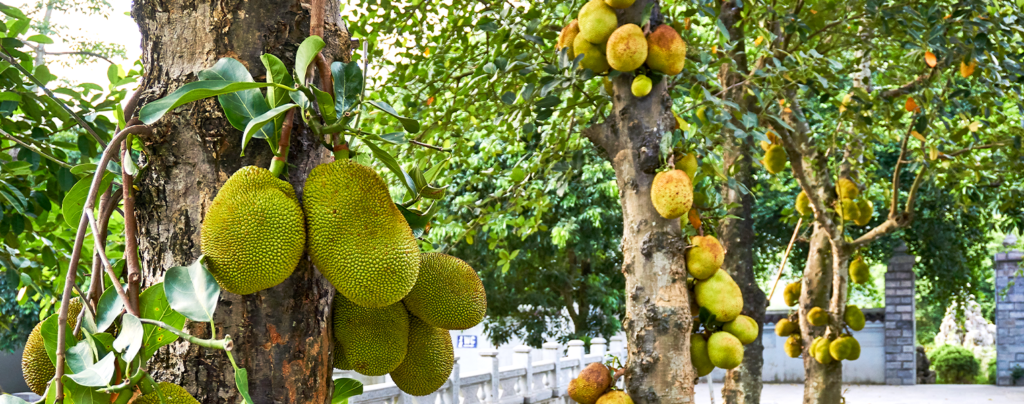
How Do You Take Care Of A Jackfruit Tree?
Now that you know how to plant a jackfruit tree, it’s time to cover basic care. Once that seedling is in the ground, you’re going to want to water it every day to help its roots grow strong. Weeds should be pulled out regularly—it’s better to do this than to use weedkiller, especially when you’re dealing with a plant that produces edible fruits. If you’ve got a severe weed problem, we carry some weed killers in-store that are safe to use. Drop by Living Color, and we’ll help you find one that won’t compromise the health and safety of your jackfruit tree.
Fertilize your tree every six months. Newly planted trees need a different formula than mature trees, so for the first two years, you’ll want to use a fertilizer with an 8:4:2:1 ratio of nitrogen, phosphorus, potassium, and magnesium. You’ll want to start with 30 grams of fertilizer, but for the next three times you apply it, you’ll want to double the amount you used the previous time. So, the second application should be 60 grams, the third should be 120 grams, and the final application should be 240 grams.
Once your tree is two years old, switch to a fertilizer formula with a 4:2:4:1 ratio, and use a full kilogram at a time. Water it well immediately afterward to help it soak in and reach the roots faster.
Jackfruit is pretty pest-resistant, so you don’t need to worry about bug problems for the most part. However, the jackfruit borer is a real menace to jackfruit trees and can do some pretty serious damage. They’re pretty tricky to combat once they appear, so you should consider applying an organic pesticide as a preventative method. Always be sure to wash your fruits thoroughly after using a pesticide. Sometimes fruit flies might swarm around the fruit on your tree, so if they’re getting annoying, you can wrap up the fruit in some newspaper to keep them away.
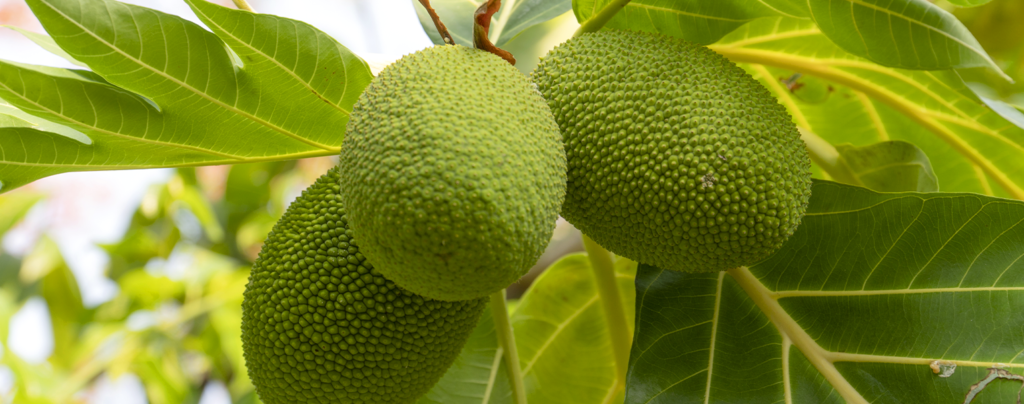
How Long Does It Take Jackfruit To Bear Fruit?
Though trees generally take a long time to mature, jackfruit trees are comparatively fast growers! In about three or four years after planting, you can expect your jackfruit tree to produce harvestable fruits.
Over time, your tree will keep growing and growing, and if you’re not consistent with your pruning, they can get pretty massive. If you want your fruits to be easy to access for harvesting, prune your tree every spring, so it doesn’t get over 20 feet tall.
Once your tree starts producing fruit, they need about 4-5 months to ripen. You’ll be amazed at how huge they get! You’ll know they’re ripe when they smell sweet and their spiky skin turns yellowish-green. Ripe fruits can be eaten alone or added into meals; however, the unripe fruits are perfect for those vegan pulled pork recipes that are taking over the internet!

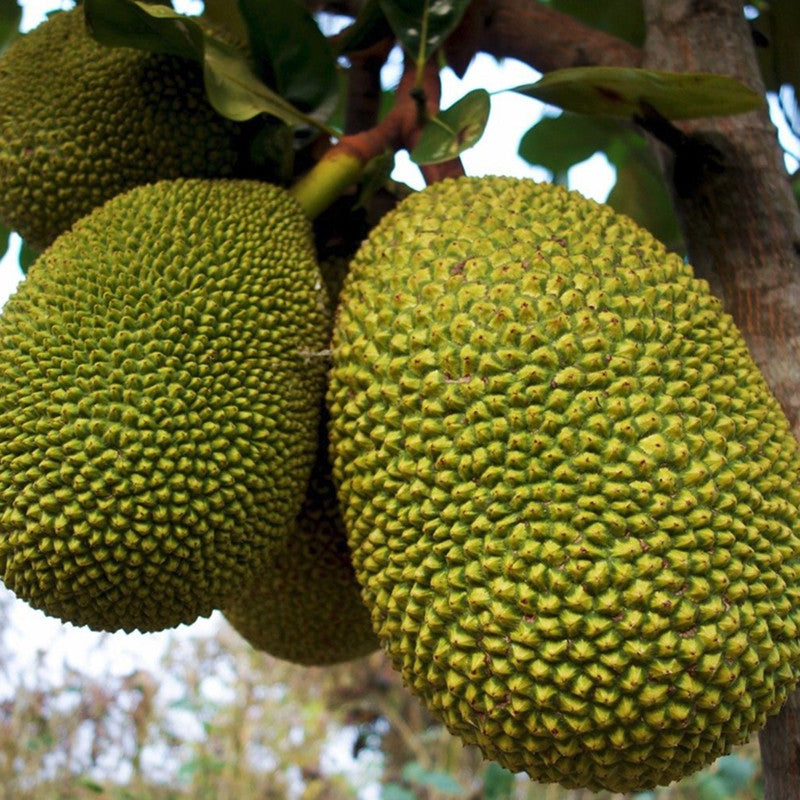
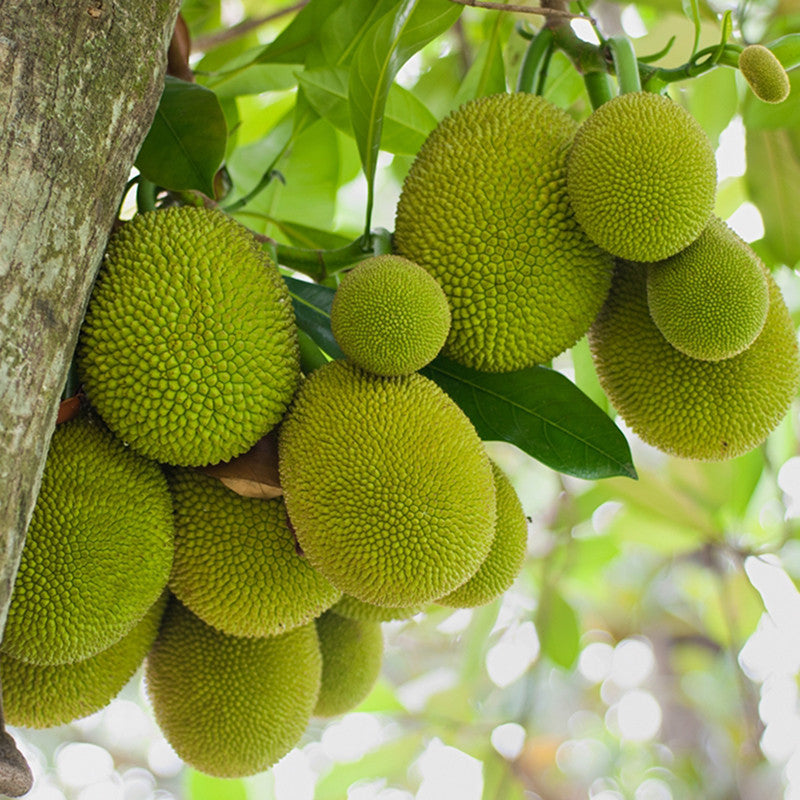

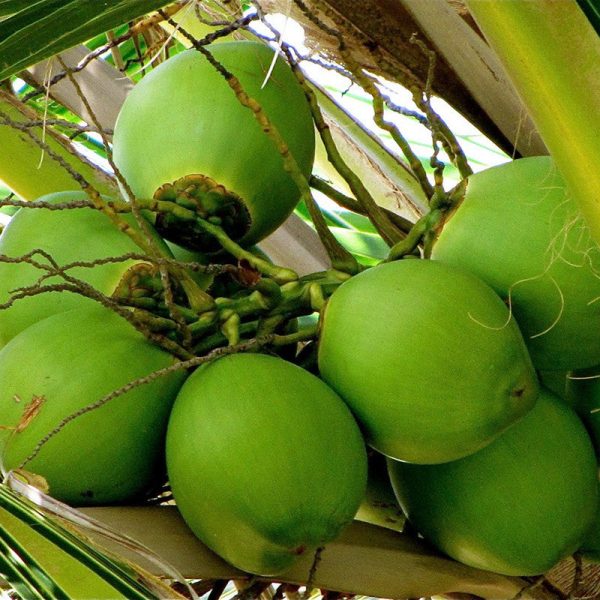





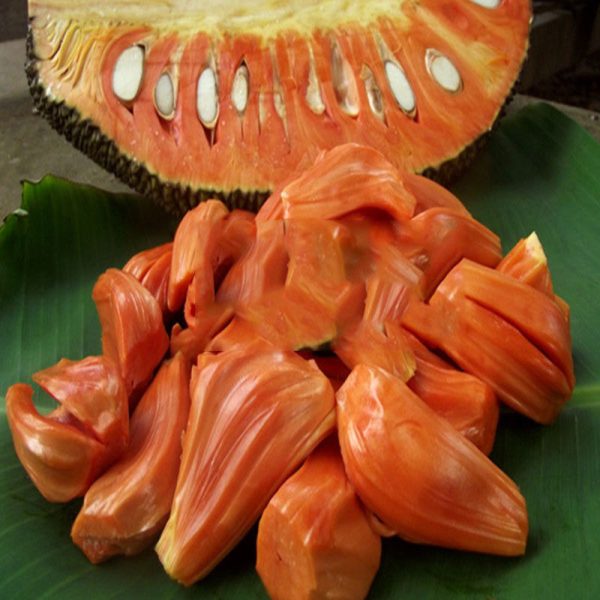

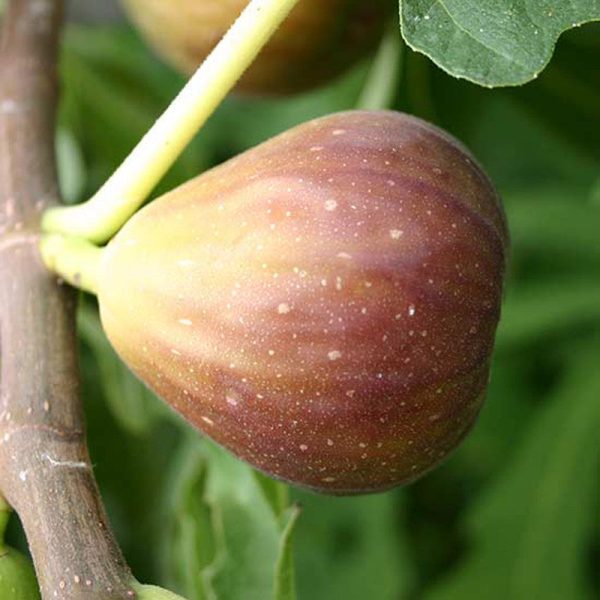
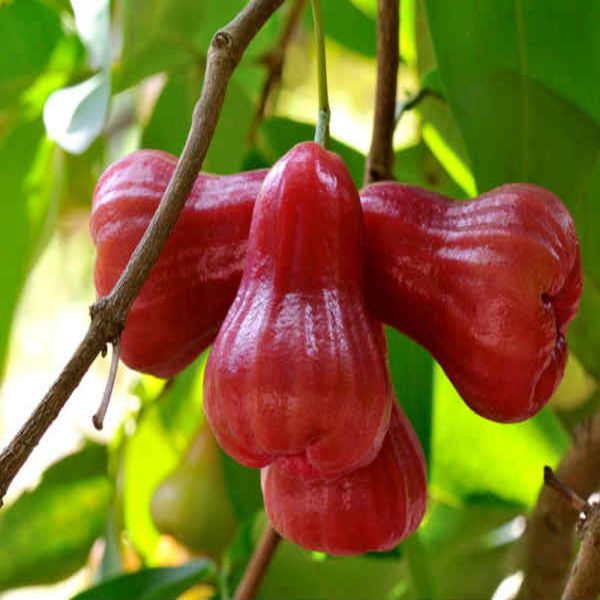

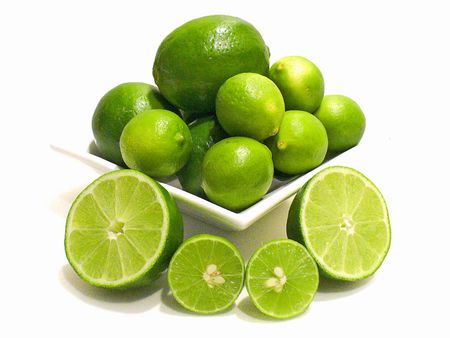
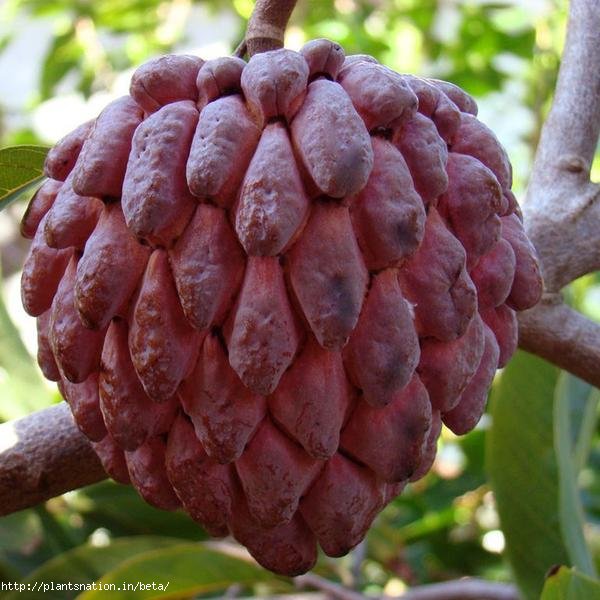
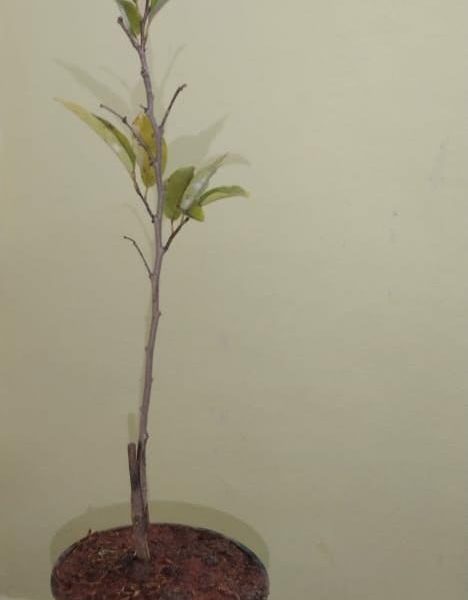
Reviews
There are no reviews yet.